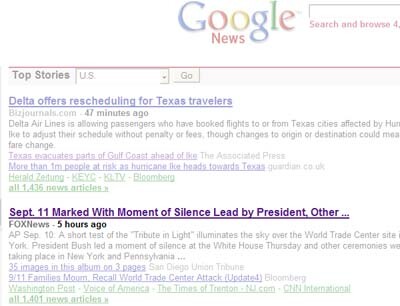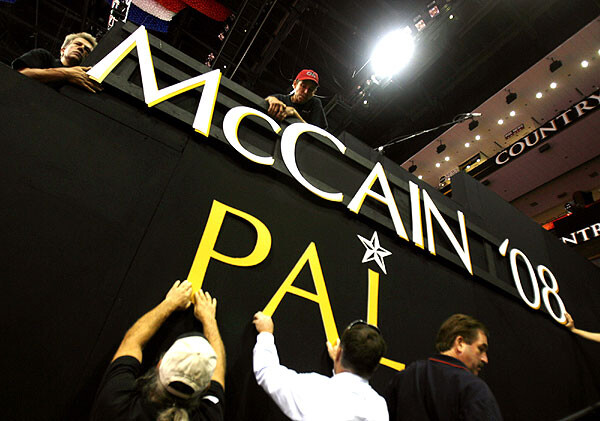I am not a trained drama critic. I am a theatergoer. I do not go to be assaulted with the pseudointellectual whining of a narcissist treating the audience like his therapist. I go to be entertained, to exercise the flaccid muscles of my long-ago liberal education, and to feel uplifted and enlightened. For my money, Sarah Ruhl is the most talented playwright working today, and she has won my brand loyalty to her work.
Although Passion Play is billed as three one-act plays, it is an integrated whole. The dominant motif is the medieval passion play, which forms the play within a play of each of the three pieces. Yet the passions that rule Ruhl’s drama are those of the players—sexual, spiritual, political—set against the period tableaux, first of Elizabethan England; second of 1934 Oberammergau; and last of Spearfish, in the Black Hills of South Dakota, in 1969, 1984, and today.
Ruhl calls upon theatrical traditions from the Greek chorus to the fool of Restoration comedy to the conceits of the passion play itself, while weaving a thoroughly modern dramatic evening.
The cast was superb, with no detectable weaknesses. Felix Solis, as Pontius the fish-gutter; Polly Noonan as the village idiot; and Kathleen Chalfant, as Queen Elizabeth, Adolf Hitler, and Ronald Reagan stood out.
The staging and production design, as always with Yale Rep, were imaginative and well executed. I wish there were a tradition of the director and the design team joining the players for bows at the end.
Passion Play opens tonight at Yale Rep and runs through October 11. If you are anywhere within the sound of my voice, hie thee to New Haven for a theatrical treat. Caveats: While auditorium ventilation is excellent, you should know that tobacco is smoked onstage once or twice and the aroma is detectable. Also, parents might wish to know that adult themes predominate (not obnoxiously by any means, but different families have different sensibilities).
occasional essays on working with words and pictures
—writing, editing, typographic design, web design, and publishing—
from the perspective of a guy who has been putting squiggly marks on paper for over five decades and on the computer monitor for over two decades
Thursday, September 25, 2008
Tuesday, September 23, 2008
Fall
The season which began yesterday is called fall because autumn is when leaves fall in temperate climes. But leaves are not falling. Stock prices are. In observance of current events, I thought I’d go over some vocabulary items that are or will shortly be in the news.
bailout
English has two distinct words bail. One is rooted in Old Icelandic and refers to the curved handle of a pail and similar objects (the bail of a Conestoga wagon or of a fishing reel, for example). The word bow is related.
The other word bail comes from a Latin word for carrier or porter and refers to the bucket the curved handle is attached to, but don’t let that confuse you (although it always confused me until I looked the word up today). This is the bail of bailing water out of a boat, bailing out of a burning plane, abandoning an enterprise, bailing a company or person out of a predicament, and bailing an investment banker out of jail.
business and finance
We’re so used to seeing and hearing business and finance as a news category that it’s easy to forget they’re two different things. The trope heard most often these days to distinguish them is “Main Street” and “Wall Street,” and that’s as good a way as any to think of them. Finance refers to renting out money for interest, the object of which is to end up with more money than you started with. Business generally refers to providing goods or services, presumably at a profit, an activity that depends on the ready availability of money, which is often borrowed from financiers.
the real economy
Here’s another phrase being trotted out by current commentators, reporters, and news analysts. On the radio, you can almost hear the air quotes. The real economy encompasses all levels of business, including agriculture and mining, manufacturing, distribution, wholesale and retail trade, and services. It also includes the status of individuals in terms of their employment, healthcare, insurance costs, and taxes. That’s a much broader sweep than just business, which encompasses the condition of companies more than that of the people who work at those companies.
investors and traders
We often lump together everyone who owns shares in at least one company or mutual fund, but we shouldn’t. Traders focus on short-term ups and downs of stock prices, irrespective of the nature or condition of the companies whose stocks they are trading. Investors focus on the long-term profit potential of the companies whose stocks they buy. An individual can both invest and trade, of course.
leverage
Leverage is trading with borrowed money. This takes place entirely within the financial world, not the business world. If I have one dollar, I might be pretty sure I can make a trade that will net me a five-cent profit. On the strength of my good name and reputation, I can borrow thirty dollars, meaning that I stand to make a buck-fifty, minus the interest I have to pay on the thirty dollars. Obviously, if all I have to my name is one dollar, I’d rather make a buck-fifty with it than a nickel. So I’ll take the risk of borrowing the thirty dollars. But if instead of making money I lose a buck-fifty, all of a sudden I owe more than I have. That’s the downside of leverage.
Ponzi scheme
A Ponzi scheme, named for Charles Ponzi, who pulled it off around 1920, is a financial pyramid in which funds from new investors are used to pay profits to prior investors. There is no money left to pay off the last investors in, and they lose their money, unless, of course, the last investors in are able to print money at will, in which case the losers are the holders of the currency whose value is thus diluted.
bailout
English has two distinct words bail. One is rooted in Old Icelandic and refers to the curved handle of a pail and similar objects (the bail of a Conestoga wagon or of a fishing reel, for example). The word bow is related.
The other word bail comes from a Latin word for carrier or porter and refers to the bucket the curved handle is attached to, but don’t let that confuse you (although it always confused me until I looked the word up today). This is the bail of bailing water out of a boat, bailing out of a burning plane, abandoning an enterprise, bailing a company or person out of a predicament, and bailing an investment banker out of jail.
business and finance
We’re so used to seeing and hearing business and finance as a news category that it’s easy to forget they’re two different things. The trope heard most often these days to distinguish them is “Main Street” and “Wall Street,” and that’s as good a way as any to think of them. Finance refers to renting out money for interest, the object of which is to end up with more money than you started with. Business generally refers to providing goods or services, presumably at a profit, an activity that depends on the ready availability of money, which is often borrowed from financiers.
the real economy
Here’s another phrase being trotted out by current commentators, reporters, and news analysts. On the radio, you can almost hear the air quotes. The real economy encompasses all levels of business, including agriculture and mining, manufacturing, distribution, wholesale and retail trade, and services. It also includes the status of individuals in terms of their employment, healthcare, insurance costs, and taxes. That’s a much broader sweep than just business, which encompasses the condition of companies more than that of the people who work at those companies.
investors and traders
We often lump together everyone who owns shares in at least one company or mutual fund, but we shouldn’t. Traders focus on short-term ups and downs of stock prices, irrespective of the nature or condition of the companies whose stocks they are trading. Investors focus on the long-term profit potential of the companies whose stocks they buy. An individual can both invest and trade, of course.
leverage
Leverage is trading with borrowed money. This takes place entirely within the financial world, not the business world. If I have one dollar, I might be pretty sure I can make a trade that will net me a five-cent profit. On the strength of my good name and reputation, I can borrow thirty dollars, meaning that I stand to make a buck-fifty, minus the interest I have to pay on the thirty dollars. Obviously, if all I have to my name is one dollar, I’d rather make a buck-fifty with it than a nickel. So I’ll take the risk of borrowing the thirty dollars. But if instead of making money I lose a buck-fifty, all of a sudden I owe more than I have. That’s the downside of leverage.
Ponzi scheme
A Ponzi scheme, named for Charles Ponzi, who pulled it off around 1920, is a financial pyramid in which funds from new investors are used to pay profits to prior investors. There is no money left to pay off the last investors in, and they lose their money, unless, of course, the last investors in are able to print money at will, in which case the losers are the holders of the currency whose value is thus diluted.
Tuesday, September 16, 2008
Word salad
I joined the CELery after More Food for Thought was already well under way and did not contribute to it. I’m just spreading the word on what looks like an interesting cookbook for a good cause. My online pal Katharine O’Moore-Klopf was the production editor, and I’ll let her tell you all about it.
Political ambiguity
According to the Associated Press, “Wall Street turmoil underscores the need to overhaul ‘the outdated and ineffective patchwork quilt of regulatory oversight in Washington,’ Republican presidential contender John McCain said Monday.”
Given McCain’s staunch support for deregulation of markets over the last decades, the question arises as to what sort of overhaul he has in mind. Those in favor of greater regulatory control can see “overhaul” or “reform” as meaning changes to bring about more and better regulation. Those opposed to any regulatory control can see “overhaul” or “reform” to mean abolition of all regulation.
On the face of it, the statement can mean either. This is certainly an efficient way to tell everyone what they want to hear. It’s a technique writers interested in clarity should not emulate.
Given McCain’s staunch support for deregulation of markets over the last decades, the question arises as to what sort of overhaul he has in mind. Those in favor of greater regulatory control can see “overhaul” or “reform” as meaning changes to bring about more and better regulation. Those opposed to any regulatory control can see “overhaul” or “reform” to mean abolition of all regulation.
On the face of it, the statement can mean either. This is certainly an efficient way to tell everyone what they want to hear. It’s a technique writers interested in clarity should not emulate.
Sunday, September 14, 2008
A shipwreck at sea can ruin your whole day
Way, way down at the bottom of this blog is a little green and white icon that looks something like the Brooklyn Bridge (except that is not what it is meant to look like). That’s an indicator that I use a free service, called SiteMeter, to keep track of how many people visit the blog.
The free version of SiteMeter is what you might call web analytics lite. It isn’t robust enough to service the needs of a large ecommerce company, but it gives me interesting information and, more important, yet another way to waste time during the day, checking on my site stats.
SiteMeter makes their money from paid subscribers, of course; and it gives them more data than it gives me. That’s fine, and more power to them.
Well, for the last several months, SiteMeter has been promising a spiffy new user interface, and this weekend was when they decided they were ready to roll it out. Unfortunately, although the company’s management may have been ready to roll out the new software, the new software wasn’t ready to be rolled out. It has, um, performance issues, sort of the software equivalent of erectile dysfunction. It can’t stay up, in other words.
So now SiteMeter is rolling the interface back to the old software, which worked fine. I have no inside information on whether they’re going to try to repair the new software or abandon it and start over. My opinion, for what it’s worth, is that this was a really, really bad idea. Instead of continuing to serve data as HTML and just spiffing up the presentation, they got all artsy-fartsy and implemented the interface in Flash. This led to three completely predictable problems:
Why do companies invest months of expensive development time in a bad idea and then roll it out when they should already know it cannot possibly work? It seems to me that this is consistent with the magical thinking school of management: Logic be damned! If I keep saying something will happen, and I say it enthusiastically enough, by golly it will happen. “Magic words of poof, poof, piffles, make me just as small as Sniffles!”
Clear thinking matters.
The free version of SiteMeter is what you might call web analytics lite. It isn’t robust enough to service the needs of a large ecommerce company, but it gives me interesting information and, more important, yet another way to waste time during the day, checking on my site stats.
SiteMeter makes their money from paid subscribers, of course; and it gives them more data than it gives me. That’s fine, and more power to them.
Well, for the last several months, SiteMeter has been promising a spiffy new user interface, and this weekend was when they decided they were ready to roll it out. Unfortunately, although the company’s management may have been ready to roll out the new software, the new software wasn’t ready to be rolled out. It has, um, performance issues, sort of the software equivalent of erectile dysfunction. It can’t stay up, in other words.
So now SiteMeter is rolling the interface back to the old software, which worked fine. I have no inside information on whether they’re going to try to repair the new software or abandon it and start over. My opinion, for what it’s worth, is that this was a really, really bad idea. Instead of continuing to serve data as HTML and just spiffing up the presentation, they got all artsy-fartsy and implemented the interface in Flash. This led to three completely predictable problems:
- Graphic artists got hold of the process and introduced all kinds of pretty but completely illegible presentation formats.
- Because the presentation is controlled by Flash, the browser cannot reach in and make the fonts larger (more legible)—and the design does not include Flash buttons to do the same thing.
- Accessing the data and refreshing the display take way too long.
Why do companies invest months of expensive development time in a bad idea and then roll it out when they should already know it cannot possibly work? It seems to me that this is consistent with the magical thinking school of management: Logic be damned! If I keep saying something will happen, and I say it enthusiastically enough, by golly it will happen. “Magic words of poof, poof, piffles, make me just as small as Sniffles!”
Clear thinking matters.
Thursday, September 11, 2008
Listen up, hockey moms
The question of residual errors crops up from time to time, and I give a convoluted explanation involving math, which generally causes people’s eyes to glaze over. Fellow copyeditor Lloyd Davis, a hockey fan, offers this, which I quote with permission:
Copyeditors are like goalies. We prevent a lot from getting past us, but even the best one has an off night, or just gets fooled by a shot that he would otherwise stop easily.
Thursday, September 04, 2008
Wednesday, September 03, 2008
The ear of a speechwriter
If you’ve been listening to the two political conventions, maybe you’ve noticed an interesting distinction.
At both conventions, there have been a number of warm-up speeches each night followed by one or two major speeches.
The majority of the warm-up speeches at the DNC shared a number of stock phrases—platform or campaign bullet points, basically—verbatim. This suggests (and one commentator I heard confirmed this) that these speeches were professionally written by a small group of speechwriters. While it was a bit boring to hear the same arguments repeated by every speaker, there was a cohesiveness to the presentation that got the message across.
In contrast, listening to the RNC, it’s pretty clear that all the warm-up speakers are responsible for their own speechwriting. That is, if they have help, it’s from someone on their own payroll, not from a speechwriting shop hired by the party. (That, or the party speechwriters are just not very good, but that seems doubtful.) The speeches are all over the lot in terms of content, emphasis, and points made; and they’re tremendously variable in terms of the writing craft—some are truly abysmal. The variety makes these speeches a bit more interesting, but the opportunity for really bad political gaffes is magnified tremendously. To me it seems like a tactical mistake—one I wouldn’t want a client of mine to make.
Both of these are essentially four-day infomercials, as many commentators have noted. As such, it seems to me they should have the best production values money can buy, and that includes professional writing.
Craft matters.
At both conventions, there have been a number of warm-up speeches each night followed by one or two major speeches.
The majority of the warm-up speeches at the DNC shared a number of stock phrases—platform or campaign bullet points, basically—verbatim. This suggests (and one commentator I heard confirmed this) that these speeches were professionally written by a small group of speechwriters. While it was a bit boring to hear the same arguments repeated by every speaker, there was a cohesiveness to the presentation that got the message across.
In contrast, listening to the RNC, it’s pretty clear that all the warm-up speakers are responsible for their own speechwriting. That is, if they have help, it’s from someone on their own payroll, not from a speechwriting shop hired by the party. (That, or the party speechwriters are just not very good, but that seems doubtful.) The speeches are all over the lot in terms of content, emphasis, and points made; and they’re tremendously variable in terms of the writing craft—some are truly abysmal. The variety makes these speeches a bit more interesting, but the opportunity for really bad political gaffes is magnified tremendously. To me it seems like a tactical mistake—one I wouldn’t want a client of mine to make.
Both of these are essentially four-day infomercials, as many commentators have noted. As such, it seems to me they should have the best production values money can buy, and that includes professional writing.
Craft matters.
Subscribe to:
Posts (Atom)


 ... and then there’s this, about which the less said the better:
... and then there’s this, about which the less said the better:
